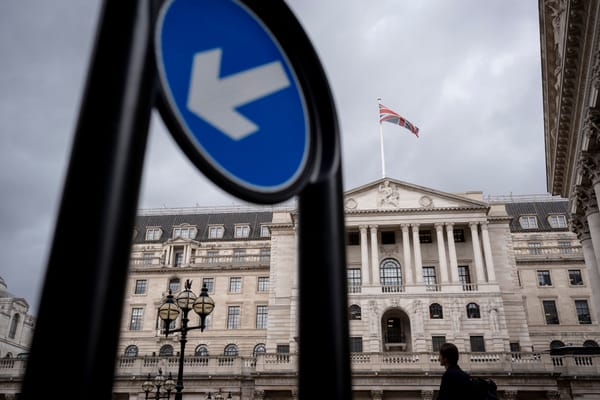On Sept. 23, Britain’s new prime minister, Liz Truss, announced her budget. Soon after, British bond markets went haywire, and the pound sterling started to plummet—as did support for her party: Truss’s Tories have lost seven points in the polls, and the opposition Labour party has increased its standing by nine, giving it a whopping 33-point lead in election prognoses. Half of Britons think Truss should step down, less than a month into her tenure.
Truss’s budget was ridiculous. With inflation raging and government finances in tatters because of the need for energy-price subsidies, most governments would pull back spending and perhaps raise taxes, but Truss and her team would have none of it. She proposed a larger tax cut than any British leader had since 1972. Yet however misguided, a budget alone wouldn’t trigger such dramatic turbulence in the financial markets. Something else is going on.
The answer is obvious: Britain is turning into an economic basket case because of the energy war being waged in Europe. Europe relies for about 40 percent of its gas needs on Russia. Germany, which is Europe’s manufacturing center, gets about 65 percent of its gas from Russia. (This gas was, until recently, piped in through a giant undersea pipeline.) When the Western allies initially sanctioned Russia in the wake of its invasion of Ukraine, no restrictions were placed on energy—because energy sanctions would quite obviously destroy the European economy.
But over the course of the summer, Moscow choked off the supply of gas. This was a predictable move, given that the European countries were shipping weapons to Ukraine. Yet it appeared to take European leaders by surprise. They started panicking about having sufficient gas for the winter.
It was against this backdrop that cracks appeared in the UK economy. While Britain isn’t overly reliant on Russian gas, the country turns to Europe for much of its supply. Europe is a single gas market, so if you remove the Russian gas, there is less to go around for everyone—including Britain.
Financial markets cottoned on to what was happening in late August, when Goldman Sachs published projections showing inflation in Britain hitting a shocking 22 percent in 2023. A few days later, Deutsche Bank predicted that Britain’s trade deficit would hit 10 percent and that the sterling would shed 30 percent of its value. These are the sorts of figures you see in failed states and war-torn nations. They aren’t remotely sustainable.
These projections were released nearly a month before the budget. They showed clearly how and why sterling would collapse. It wasn’t about the budget—the budget was just a trigger handed to markets by clumsy politicians.
"Britain should be viewed as a canary in the coal mine."
Britain should be viewed as a canary in the coal mine. It is especially susceptible to market swings, given the deep financialization of its economy. But the same process is likely to play out across the whole of Europe this winter. High energy prices are going to collapse European manufacturing and deindustrialize the economy. Europe’s manufacturing base underpins the value of the euro. When this base is obliterated by high energy costs, the euro will sink.
Until very recently, a way back was visible. If a negotiated settlement took place, Russia would restore the gas. After a bad winter, things would go back to normal. That is no longer possible, because the Nord Stream pipelines have been sabotaged. This means that energy prices will remain high in Europe for a very long time—basically until Europe builds a new energy infrastructure.
Britain is only the first shoe to drop. Europe will soon fall, too. The economic consequences will be devastating. Europe is America’s largest trade partner. There is every chance that Europe will slip into an economic depression and pull America down with it—just as happened in the 1930s. The European energy war of 2022 will almost certainly go down in history, along with the Treaty of Versailles, as one of the worst economic blunders in history.
